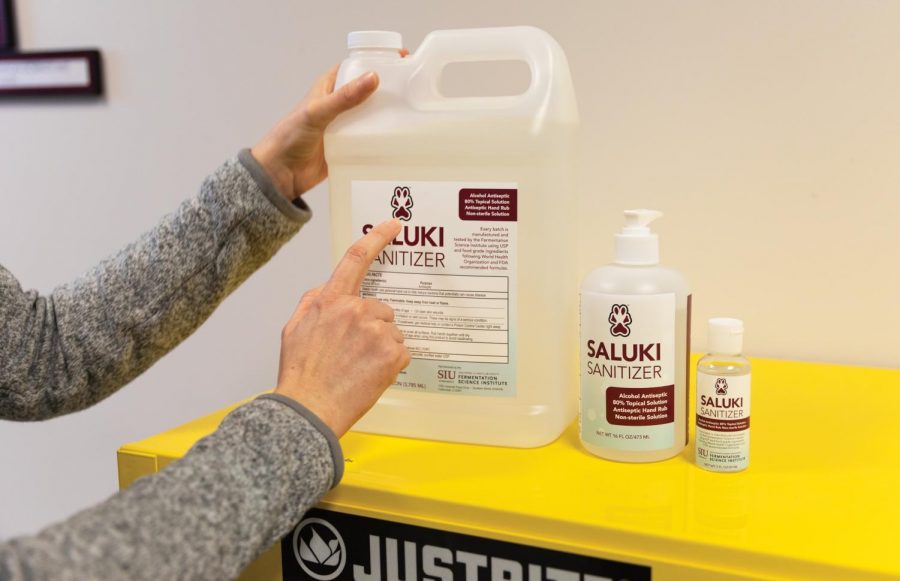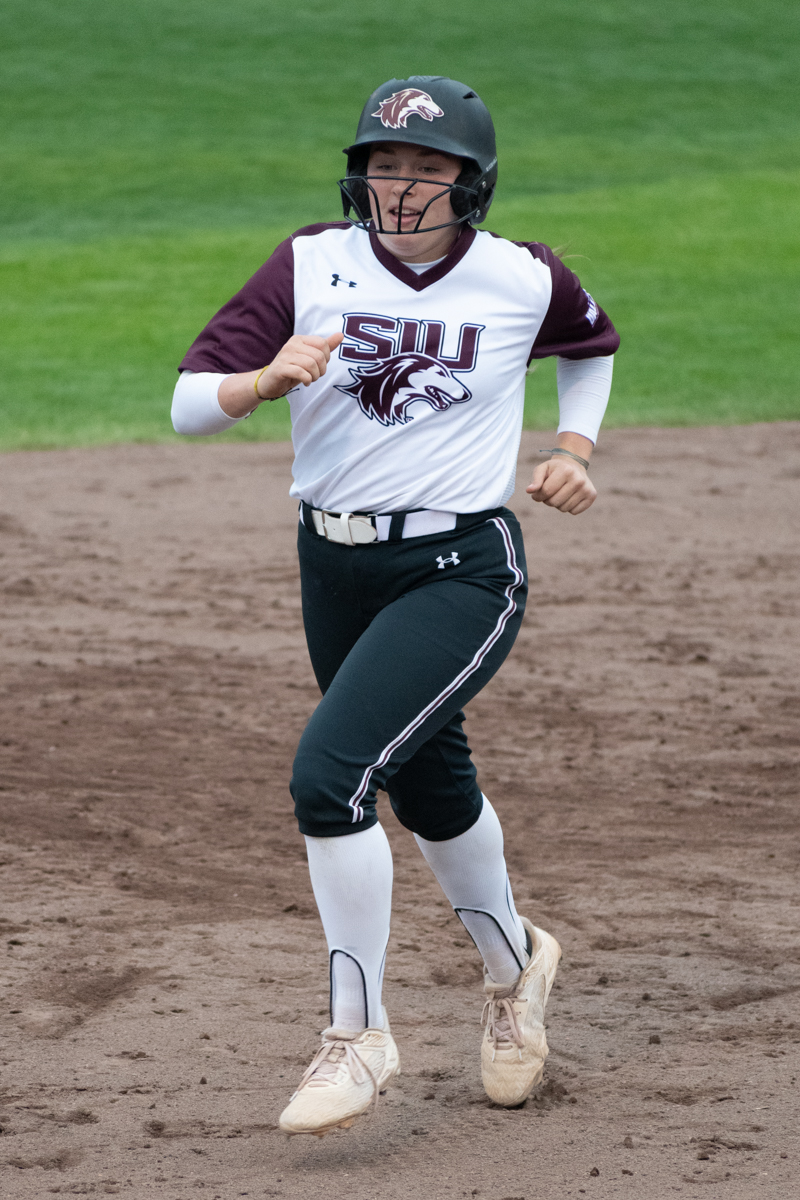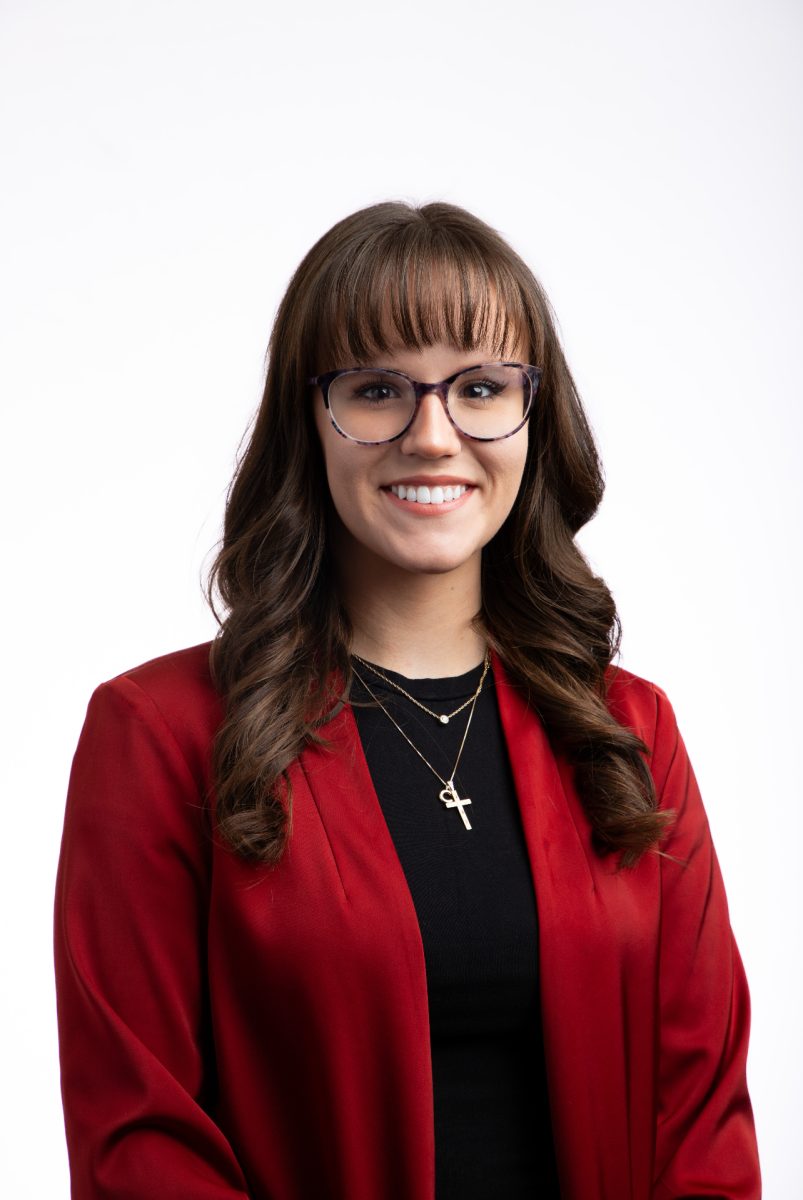SIU professors contribute to COVID-19 research
November 1, 2020
The SIU community is playing an active role in conducting research about COVID-19.
The Saluki Sanitizer project has produced a hand sanitizer that is being distributed across the SIU campus and Associate Professor of chemistry and biochemistry Keith Gagnon is conducting research on how COVID-19 travels within populations.
The research Gagnon is conducting can be useful in understanding how COVID-19 spreads and could provide information that can help city officials moving forward.
Advertisement
Gagnon is looking for mutations in the virus and these mutations can change the way the virus spreads, causing it to spread slower or faster.
This is useful because it shows how the virus can mutate and by seeing where different mutations appear and can show how the virus has been traveling.
Gagnon’s research is funded by the Chicago Coronavirus Assessment Network grant of $500,000 with approximately $360,000 allocated for SIU
“The COVID-19 project is focused on sequencing the genomes of the virus that causes COVID-19, that virus is called SARS-CoV-2,” Gagnon said.
Gagnon and his team are extracting the virus’s RNA genome, converting it to DNA and sequencing it.
A genome is a complete set of biological information.
Gagnon converts the RNA of SARS-CoV-2 into DNA in order to work with and analyze genetic information.
Advertisement*
“We want to know how the virus is moving and changing over time in a big mid-western state like Illinois and use all this to learn more about how the pandemic spreads,” Gagnon said.
The sample of the inactivated SARS-CoV-2 virus comes from the Illinois Department of Public Health, Gagnon said.
“When we receive the virus it is in a solution where it has been inactivated. Nonetheless, it could have impact viral genomes. If an impact viral genome were to enter one of your cells it could reproduce the virus,” Gagnon said.
The virus container does not get opened unless they are in a biosafety cabinet and they perform all of the RNA extraction inside the cabinet, Gagnon said.
“After we extract the RNA it is relatively safe but we still continue to do the next steps under the hood,” Gagnon said.
Any plastic wear or surfaces that touch the virus are autoclaved or bleached, Gagnon said.
The lab has established new safety protocols to keep the researchers safe from COVID-19.
“We had to establish all new protocols. Luckily these have been established by other investigators around the world and a lot of it was online. We pulled from online resources to develop new protocols for my lab,” Gagnon said.
Automated liquid handlers are being used in the lab to help facilitate, speed up and improve the safety, Gagnon said.
“When we started this project it was very much a team effort, probably close to 10 people have helped out. There are one or two students who are really taking the lead on this project at this point,” Gagnon said.
Gagnon said they decided to pursue this project in the middle of April and they got clearance for it in August.
In April, Fermentation Science Institute director Matt McCarroll began producing a hand sanitizer called Saluki Sanitizer that was distributed across campus.
“We have completed the first round of commitment that we had for central campus […] and we have also been producing hand sanitizer for other units on campus and other entities off campus as well,” Matt McCarroll said.
Saluki Sanitizer is being sold to the members of the Carbondale community as well as on campus.
“We’ve had some outside entities that have already purchased [it]. The Foundation has already purchased several two ounce containers and they are distributing those to alumni,” McCarroll said.
The sanitizer is being sold to nonprofits in the community and to RSOs, McCarroll said.
“It kind of went as we expected. We are happy that we are getting some interest outside, we’ve probably sold the equivalent of 10 or 15 gallons to the outside community,” McCarroll said.
One part of research that was conducted to produce Saluki Sanitizer included background research on how to produce it safely and under the correct regulations, McCarroll said.
“The World Health Organization put out a formulation for hand sanitizer and their goal was to make something that could be [reproduced] all over the world and be effective for killing the coronavirus,” McCarroll said.
McCarroll said a lot of the research was figuring out the regulations for handling large amounts of ethanol in the building.
“We had to work with campus entities and the environmental health and safety center for determining how much volume we could have and how to handle it properly,” McCarroll said.
Another area of research that McCarroll and his team went through was the scent of the sanitizer.
“Our formulation uses a high grade of USP, or United States Pharmaceutical grade ethanol which has a really high purity standard,” McCarroll said.
McCarroll measured the impurities in different hand sanitizers on the market and Saluki Sanitizer is the most pure out of the products tested. The first batch of sanitizer was made in August with 55 gallon drums.
“We have produced close to 600 gallons in total. That was in the plan of what we were expecting to do and now we are in a holding pattern to see how the sales are and where things go from there,” McCarroll said.
McCarroll said there will be a continued need for sanitizer and the demand will depend on how the pandemic proceeds.
“It kind of went as we expected. We are happy that we are getting some interest outside, we’ve probably sold the equivalent of 10 or 15 gallons to the outside community,” McCarroll said.
McCarroll is not thinking about any new research now, but he has thought about expanding the sanitizer research, he said.
“We haven’t really thought about anything new. One thing that I thought about doing is a second formulation. There are two types of hand sanitizer, the liquid type that we are producing and the gel type,” McCarroll said.
McCarroll said they did not pursue the gel type because it was not in the WHO formulation and it has a more extensive approval process.
Staff reporter Janae Mosby can be reached at jmosby@dailyegyptian.com or on Twitter at @mosbyj.
To stay up to date with all your southern Illinois news, follow the Daily Egyptian on Facebook and Twitter
Advertisement









